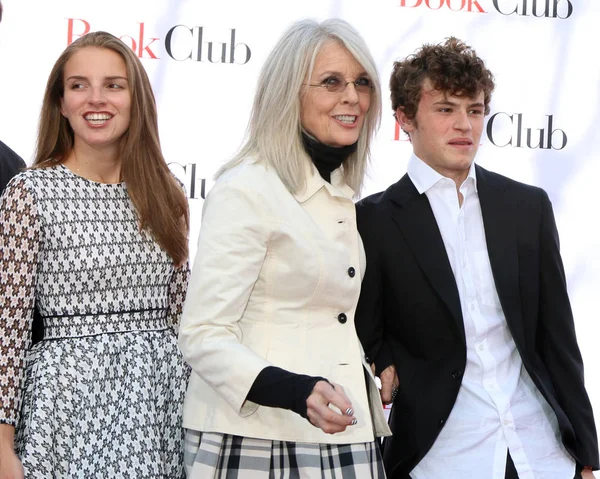
The news that Diane Keaton died at 79 has shocked Hollywood and audiences everywhere into reflection. She had, over the course of five decades, been a sui generis on-screen presence offbeat, urbane, yet irresistibly watchable whose professional life spanned the 1970s through the 2010s, with parts that defined the cultural atmosphere as thoroughly as they repositioned the role of the woman in image.

1. The Career that Was Launched with The Godfather
Her breakout role arrived with Francis Ford Coppola’s “The Godfather” (1972) and “The Godfather Part II” (1974), as Kay Adams, the moral compass and emotional core to Al Pacino’s Michael Corleone. Her role in Part II, most especially the scene in which she tells Michael about a past difficult decision regarding her pregnancy,” remains one of the most indelible moments in American cinematic history. As some critics opined, her participation introduced conscience and depth to a saga that otherwise succumbed to machismo.

2. Annie Hall and the Woody Allen Years
Her Woody Allen films defined a romantic comedy decade. Allen famously wrote “Annie Hall” for her, with the star giving the lead character her real surname, and no one else could embody the warmth, vulnerability, and intelligence of Annie without falling into stereotype. The role won her the 1978 Oscar for Best Actress, with Allen pronouncing her “one of the greatest natural comediennes I’ve ever seen.” They appeared together in “Interiors” (1978), “Manhattan” (1979), and “Manhattan Murder Mystery” (1993), the latter filling the breach of Mia Farrow at the eleventh hour during Woody Allen’s highly publicized split with the actress. Their friendship withstood nearly six decades, with Allen proclaiming at her AFI tribute, “Much of what I’ve accomplished in my life I owe, for sure, to her.”

3. Nancy Meyers and the Rom-Com Redefinition
Keaton’s collaboration with Nancy Meyers introduced a different type of romantic comedy to the masses. In “Father of the Bride” (1991) and the sequel, she starred as the warm yet earthy mother opposite Steve Martin. With “Baby Boom” (1987), she represented the dilemma of high-powered women in the ’80s, juggling professional ambitions with self-reinvention a role that kicked off the Meyers franchise of inspirational yet emotionally affecting rom-coms. In “Something’s Gotta Give” (2003), she gave such a charming performance that she received yet another Oscar nomination, navigating complex romantic relationships.

4. Comedy with Bite: The First Wives Club
In the 1996 film “The First Wives Club,” Keaton co-starred with Bette Midler and Goldie Hawn in a revenge comedy that has since become a cultural icon. As Annie Paradis, she showed warmth and unheroic strength in a role that blended comedy with the assertion of women reclaiming power after having been betrayed. As one review put it, she was “a great team player” whose warmth made her sympathetic to audiences right away.

5. Dramatic Depth, Beyond Comedy
Though frequently recalled for her comedic performances, the dramatic efforts of Keaton were no less impressive. Her role as Bessie, the sister who must care for her dying father as she confronts her own leukemia, in “Marvin’s Room” (1996), won her still another Oscar nomination. Her pictures such as “Shoot the Moon” (1982), “Reds” (1981), exhibited her power to capture emotional intensity and intellectual discipline, as seen with the praise from Warren Beatty as “an unpredictable, mysterious, suspenseful, constantly surprising plot” in herself.

6. Style and Cultural Impact
Her impact exceeded the actor’s craft. Her lookwide-brimmed hat, vest, tie was as recognizable as her acting, and it expressed self-determination and self-confidence in a Hollywood that objectified women in the interest of sexiness. As one observer has said, she made herself subject, never object, always objecting to the industry obsession with “sexiness above all.”

7. AFI Lifetime Achievement Award
In 2017, the American Film Institute honored Keaton with the Lifetime Achievement Award, a starry evening that featured testimonials from Woody Allen, Meryl Streep, Al Pacino, and Steve Martin. Woody Allen responded, balancing comedy with tears to tell the audience, “She really is astonishing.”

8. Personal Life and Long-term Friendship
Keaton never wed, adopting daughter Dexter in 1996 and son Duke in 2001. Her highest-profile relationship of all was with Allen in the ’60s to ’70s, though despite scandal over the director, she remained openly supportive, declaring in 2018, “Woody Allen is my friend and I still believe him.” Mia Farrow, despite the troubled relationship the two had, paid tribute to her upon her death with the words “an absolutely wonderful actress and a rare and fascinating person.”

The death of Keaton signals the end of one era, yet the body of her work the bright-lit kitchens of the Nancy Meyers movies, the darkened hallways of the Coppola crime sagas, the New York streets in the Allen comedies continues to bear the passing years with equanimity. The film enthusiast is reminded with each re-screening of what one actor’s indelible presence can do to the very form of the art.


